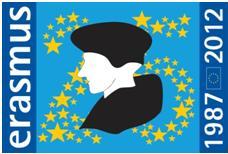Objectives (including thematic area):
The specific objectives of this IP (thematic area of Predictive Modelling and Quantitative Risk Assessment) are outlined hereunder:
(i) to develop each participants capacity to design and generate informative experimental data,
(i) to build skills in developing or selecting modelling structures appropriate to describe quantitatively chemical, microbiological and physical phenomena and develop capabilities for quantifying accurately the sources of stochasticity,
(iii) to make participants familiar with optimisation software and model simulation in research, that can be exploited for developing decision-making and quantitative risk assessment tools.
The target group of this IP are MScs or early stage PhD researchers working in the areas of public health, applied statistics, quantitative microbial/chemical risk assessment, food safety, process automation, food manufacturing. The programme will aim to promote an interactive participation, which will stimulate frank and open discussions between young and experienced postgraduate researchers.
Main activities:
Theoretical lectures will be alternated with problem-based learning (PBL). Theoretical lectures will cover all the fundamentals and basic principles of predictive modelling. Additionally, PBL pedagogical tools will be used in which students will work in groups to solve realistic multifaceted problems with the use of computer programming software. These problems will include the construction of experimental designs, model development, regression analysis, sensitivity analysis and safety risk scenarios.
Learning outcomes:
By the end of the programme students will: (i) have attained a fundamental understanding of the substantial body of applied modelling, statistics and recent developments in the field of Predictive Modelling and Quantitative Risk Assessment of foods, (ii) have exercised personal responsibility and autonomous initiative in solving complex microbiological problems that are solved in a rigorous and professional approach, (iii) have engaged in critical dialogue and learned to criticize the broader implication of Applied Modelling approaches in Food Science through interactive teaching, (iv) have exploited available software packages and quantitative approaches for enriching current studies in the field in order to communicate results and innovations of research to peers.
Expected outputs:
The cooperation in the IP programme can result in a future knowledge transfer between participating institutions and facilitate the exchange of students for practical training in companies between the countries. Additionally, the multidisciplinary character of this IP will provide an unprecedented opportunity for researchers to communicate, collaborate and advance significantly beyond the current state-of-the-art supporting many pan European research projects as well as other international projects.











